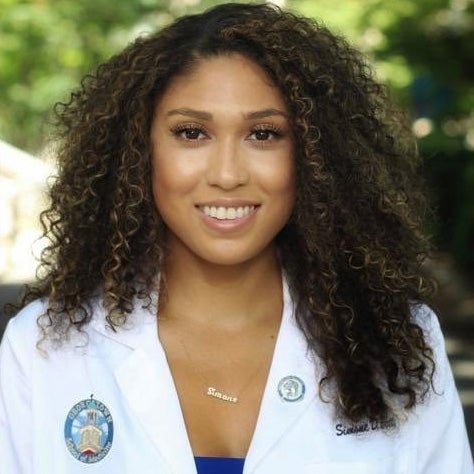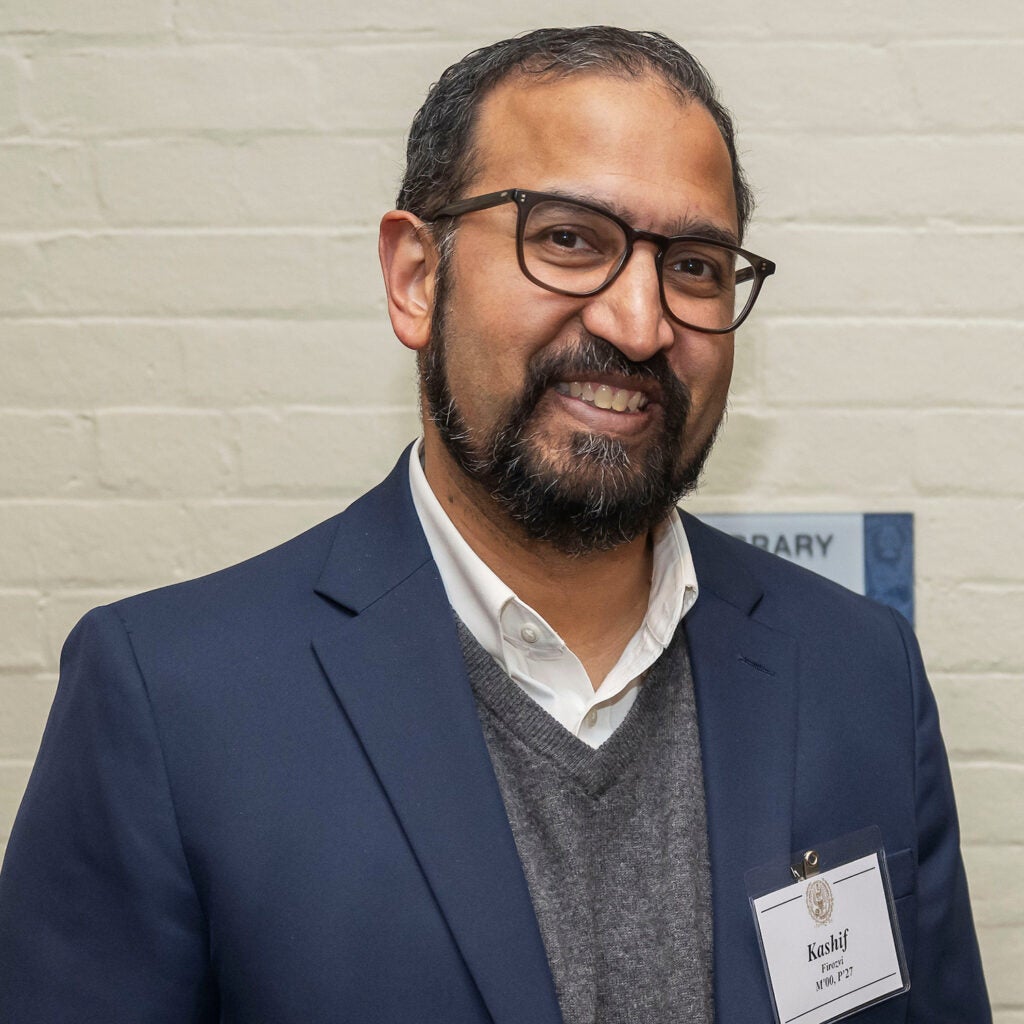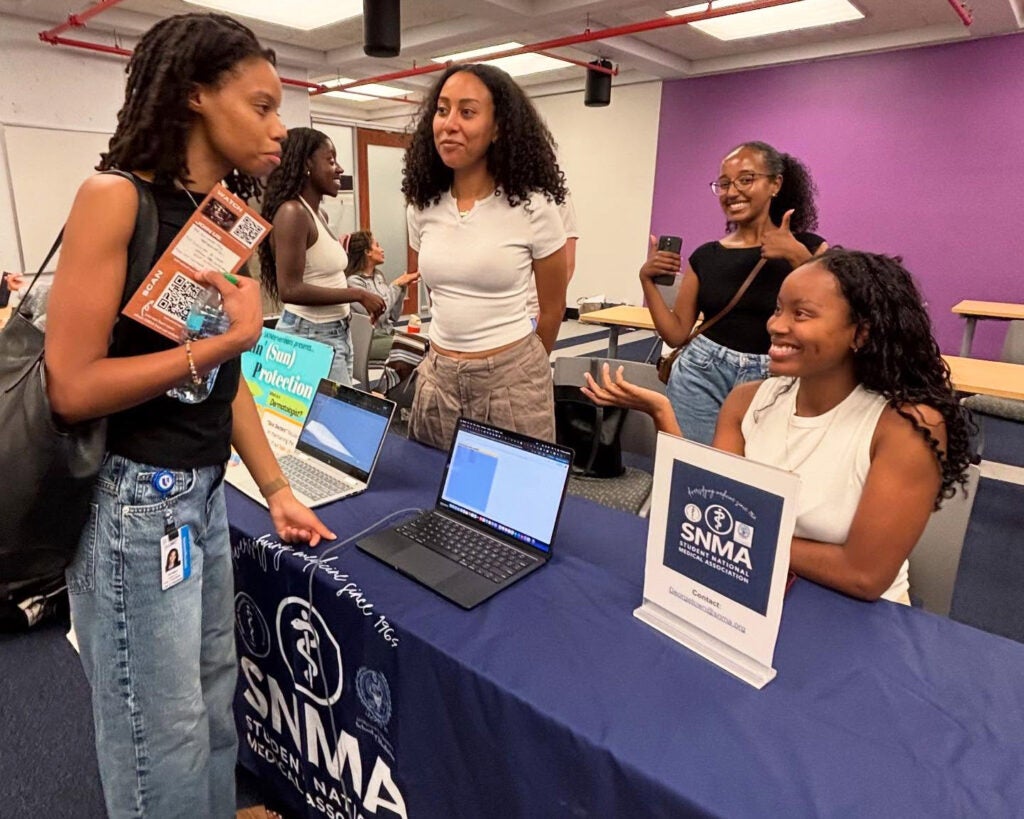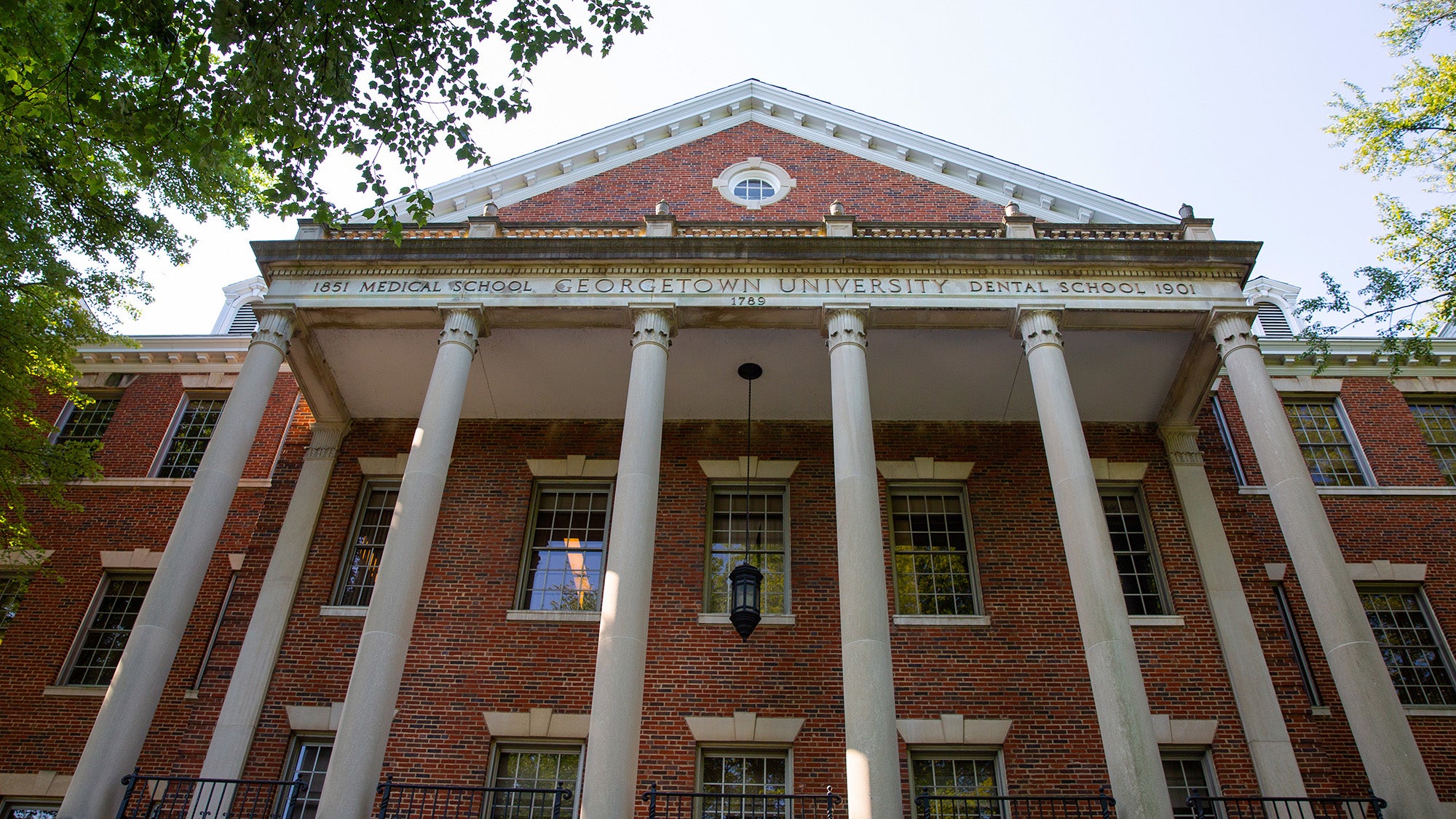School of Medicine Demonstrates Commitment to Lowering Students’ Debt Burden Through Alumni Scholarship
(October 1, 2025) — When Simone Botts (M’26), a fourth-year medical student, decided to pursue medical school as an undergraduate, she did not anticipate the difficult journey that lay ahead. After finally reaching the halls of the School of Medicine, Botts was confronted with a new challenge: the cost of attending. Fortunately, the School of Medicine community is committed to having students graduate free of as much debt as possible, and one scholarship recently awarded to Botts demonstrates the impact of financially helping medical students along their journey into the profession.

Simone Botts (M’26)
“Doors can open with any scholarship opportunity,” said Botts. “Our entire tuition as medical students is a huge amount of debt, and I’m grateful and appreciate the financial support that makes things possible like going to conferences, where I have the opportunity to network and show people in my field who I am.”
Botts’ scholarship was funded by alumnus Kash Firozvi, MD (M’00, P’27). “There are a lot of kids who share those Georgetown values but may not have the resources to fulfill their dreams of becoming a doctor,” said Firozvi, a member of the Medical Alumni Board. “The school tries to promote a culture of nurturing and supporting one another — if that is our ethos, we have to pass it on to kids who share those same values.”
“It’s also so nice to know that alumni care about our success and make an effort to give back,” said Botts. “Washington, D.C., is an expensive city, so having an alum pay it forward to help us make our way through Georgetown is special.”

Kash Firozvi, MD (M’00, P’27)
Botts expressed how every little bit of support helps. She has worked in a variety of health-related jobs while attending Georgetown, but having additional financial support allows her to focus more time on her studies and spend more time on extracurricular activities at the medical school, where she is class vice president and a health justice scholar.
“There’s already a lot of stress with attending medical school, and the financial burden it carries definitely adds another layer,” said Botts. “Not having to worry so much about funding part of tuition or even buying a textbook is helpful.”
Driven to Pursue Medicine
Botts grew up in Denver, Colorado, where no one in her family had previously pursued medicine as a career.
“I had to help my family navigate the health care system involving chronic conditions and acute care, and those experiences drew me into wanting to become a doctor,” said Botts. “I saw in these really vulnerable spaces of care for my family how a physician could make them feel comforted, and it drew me to want to be part of the medical field.”
Initially Botts thought she might become a nurse or physician assistant before deciding in college to pursue medical school. It would take Botts several years and steady persistence before enrolling in the School of Medicine.
“I didn’t know the pathway to medical school and had to figure out the whole process, from taking the MCAT to applying to schools, and it was a trial and error journey for me,” said Botts. “After speaking with a guidance counselor my junior year, I realized I was going to have to take a gap year and work on taking more classes, but at that moment, I just committed to what turned out to be a long and really hard journey ahead.”
Botts expressed moments of frustration and discouragement, but kept reaching out to doctors she knew for advice, accepting jobs as a medical assistant, a scribe, and a research assistant to gain clinical experience, and taking the MCAT multiple times.
After graduating in 2017 from the University of Colorado, Botts first arrived at Georgetown in the Master’s Degree in Physiology & Biophysics program, which she completed in 2020. While completing her master’s program, Botts learned about the GEMS program.
“I heard great things about the GEMS program, but at the time I thought, I already had a master’s degree and wasn’t sure I wanted to enter into another post baccalaureate program,” said Botts. She ultimately decided to apply to the GEMS program, which she graduated from in 2022, the same year she enrolled at the School of Medicine.
“GEMS gave me the chance to get into the School of Medicine,” said Botts. “I feel incredibly humbled in the journey it took me to reach this point where I am going to graduate in the spring. Looking back on the journey now, deciding to pursue medical school really was the best decision for me, and although it was difficult, I learned so much during the gap years, and I appreciate so much about my medical school experience now.”
People For Others
Beyond student council and her health justice scholars work, Botts has immersed herself in Georgetown’s chapter of the Student National Medical Association (SNMA) and worked with several of her classmates in creating a more inclusive dermatology curriculum that incorporates multiple representations of skin color.

Botts has immersed herself in Georgetown’s chapter of the Student National Medical Association, pIctured here at this year’s Student Activities Fair.
“The full spectrum of skin color, especially darker skin colors, are just not covered in medical textbooks,” said Botts. “We are trying to increase medical students’ exposure to variations in skin complexion and are working on a report we hope to publish and share at conferences about the effectiveness of the revised curriculum.”
Botts also volunteers with an organization of medical students interested in pursuing dermatology for their residency that goes out into schools and churches in the D.C. community to hand out skin protection and provide educational resources.
“My first introduction to dermatology was actually during one of my gap years when I worked as a surgical assistant at a plastic surgeon’s office,” Botts said. “I really enjoyed the work and the variety of cases you see while also building longitudinal relationships with patients. But I also realize there is still limited access to dermatological care for under-resourced areas and I want to pursue the specialty to work to expand care.”
Firozvi and many of his fellow School of Medicine alumni remain committed to enrolling students who are committed to serving the underserved like Botts at Georgetown.
“It is incumbent on us as former students who’ve benefited so mightily from our time here, to be able to make sure that kids who share those values aren’t turned away,” said Firozvi. “There’s something really unique about Georgetown, and we should not prevent those kids who share those values from being able to come here.”
Heather Wilpone-Welborn
GUMC Communications
To learn more about supporting tuition scholarships for Georgetown medical students, please contact Sumana Chatterjee (Sumana.Chatterjee@georgetown.edu).
